Planning Our Return to the UK, Going Gas-Free, Winter Motorhome Life & Internet TV Update
Hi folks, hope you’re doing OK, or as well as can be in these times. Life’s pretty calm and quiet here in Nerja, but a few bits and bobs are happening so I’ve popped them into this post.
Pandemic Nerja Update
Like 60-odd million people back home we’re waiting for Boris’ plan for ending the UK lockdown which he’ll reveal tomorrow. There’s a ton of speculation in the media but for once it doesn’t seem like the details are going to be leaked beforehand, so we’ll have to wait for Boris-o-clock on Monday to see what will happen. Our parents have all had their first jab, along with almost 17 million other Brits, so light is starting to shine down the old dank-and-dark corona-tunnel.
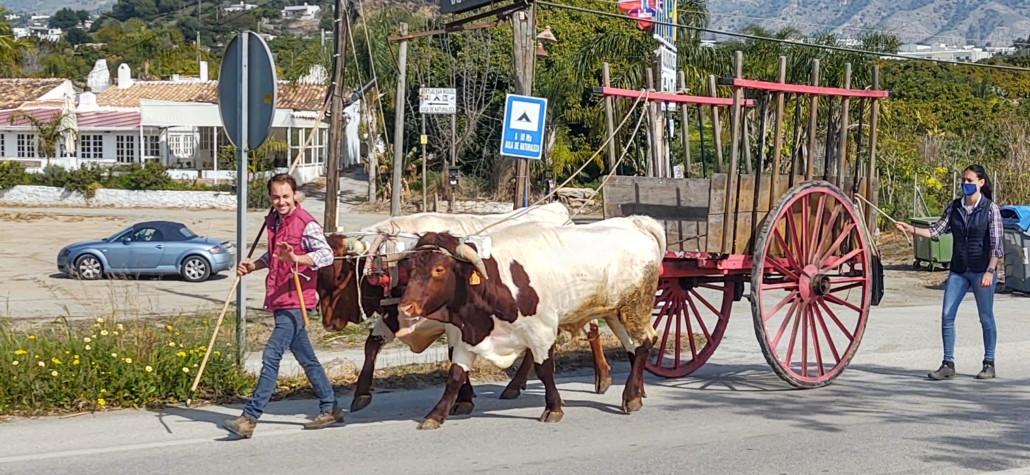
Here in Nerja the only change we’ve noticed is a steady reduction in positive cases across Andalucia (as well as the whole of Spain), and the count of those in hospital has slowly fallen from a peak in early February. Nerja reported 5 cases in the last 7 days. That’s 24 cases per 100,000 people, compared with a UK average of 128 per 100,000, and we’ve ‘gone yellow’ on the regional COVID map, meaning we’ve dropped from Level 4 to Level 3 which opens things up a little more – restaurants can now use all their capacity outdoors and 50% indoors for example.
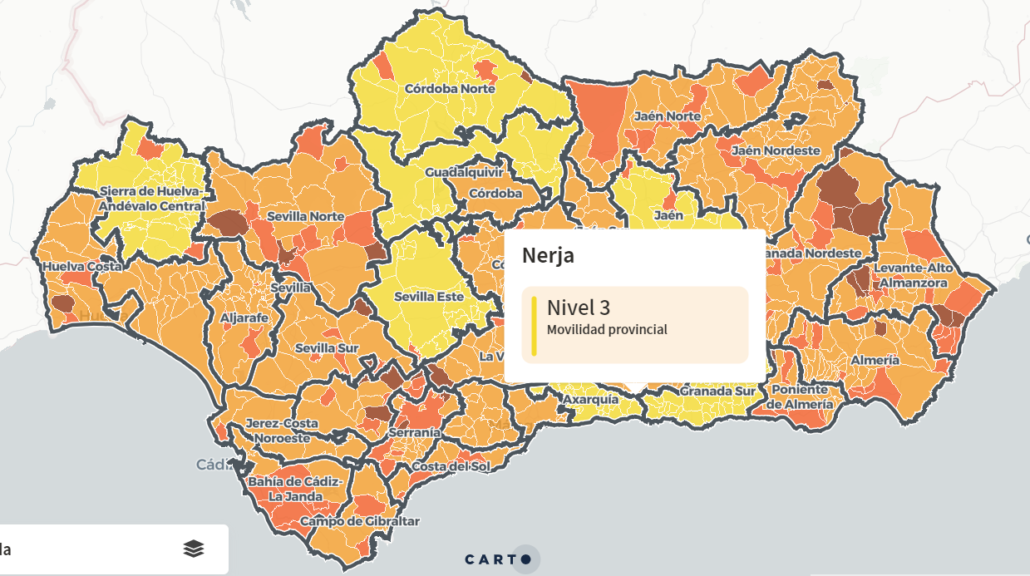
Even accounting for lower levels of testing here in Spain it appears there are far fewer cases than at home in the UK. Rates in the surrounding towns are dropping too, so more and more municipal borders are opening up and although the town and beaches are very quiet compared with when we were here this time last year, it feels like a trickle of additional people are starting to appear, especially at the weekends.
In terms of our own health, we have our EHICs plus the Andalucian government has insured tourists against COVID-19 during 2021 (this applies to us as we’re staying on a campsite). We’re both 48, so we’re not missing out on a UK vaccine jab at the moment, and we’ll be back there way before it’s available to under 50s with no underlying conditions.
Planning Our Return to the UK
Our plan this winter was to head down here in October and stay on this campsite for five months. Unprecedented stuff, the idea of staying still for so long would have driven me a tad nuts in past years, but the pandemic’s changed everything and everyone.
We’ll hit the buffers on those five months in about 5 week’s time on 31 March 2021, when the post-Brexit 90-in-180 day limit kicks in and we need to leave the Schengen Area. Legally, if we remain into April, we’ll be breaking immigration law (as I understand it – I’m not a lawyer). When we leave the area, boarding a ferry or tunnel to the UK or flying out, our passports should (in theory) be checked and if we’ve exceeded the 90 days, the computer should flag us up. If that happens, it’s up to the relevant country we’re in at the time (and the immigration official’s current mood no doubt) to decide what action to take, on a spectrum ranging from being dragged off and given a warning (just long enough for your flight/train/ferry to depart without you) to being fined, to being deported and being banned from re-entry to Schengen for a period of time. The final sanction of imprisonment seems only likely reserved for those who’ve seriously taken the P – engaging in criminal activity for example.
Quite what will happen this year for UK residents returning home after 31 March having exceeded the 90 day limit is a complete unknown. Spain has a reputation of being more lenient/uninterested than France, for example, but this is all hearsay and based on pre-Brexit times when they wouldn’t be dealing with potentially thousands of British residents returning home having exceeded their time limit. The pandemic adds another dimension to the uncertainty: will officialdom be more lenient to people getting delayed for all kinds of reasons related to it? Dunno.
Added to this 90 day limit there’s the (remote, we think/hope) possibility of Spain being added to the UK’s ‘Red List’. This would require anyone coming back to the UK from Spain to either quarantine in a hotel, or spend 10 days outside the Red List country before returning. Our strong preference is to quarantine at home, something we’re very capable of (we don’t have kids or a dog or need to go out to earn money) and experienced in doing, having already done it twice. The cost of being locked up in a hotel is high, and the idea of someone else holding the key is, for me, a mental block (Ju is more relaxed about it, like everything).
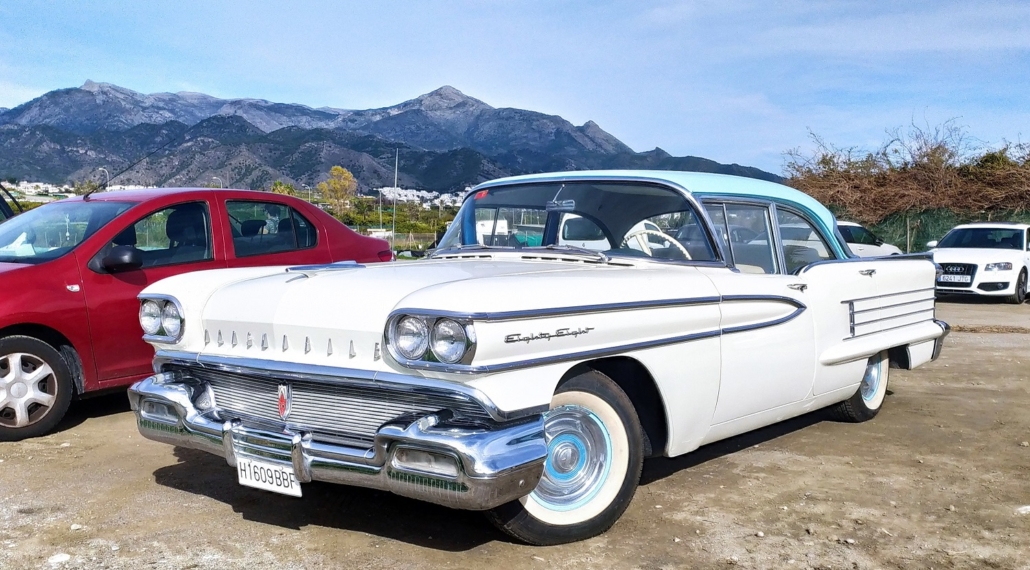
Even without the hotel we’ll both need to get three negative COVID tests each over a 10 to 13 day period before we’re able to get to and eventually exit the Cooler. That’ll cost us around £600 in total. Even having completed the string of tests we’ll be very careful who we get anywhere near once out of quarantine (we’ll keep on social distancing). That *seems* like a reasonable level of precaution to take, but it’s down to the scientists and politicians to decide all that stuff, not me. If we do have to hotel quarantine, we’ve the funds to cover it, will probably enjoy someone cooking for us for 10 days and with any luck the room will have a bath, one of the few things we miss from our ‘old lives’.
While our plan is still to come back to the UK, if we wanted to we *could* avoid all of that by driving to a non-Schengen country and waiting for a few weeks/months. In normal times the obvious place to go would be Morocco, but as far as I can tell the border remains closed to tourists. The next nearest non-Schengen country we might consider is Croatia, which we’ve really enjoyed on previous trips and is in the EU, so our insurance would be valid there too. I *think* we could head across France and Italy and get a ferry across the Adriatic to Croatia, getting PCR tests done as we go. That’s at least a 2,300km drive and I’ve not fully researched how possible this is at the moment. Alternatively, we could store the van here on-site again and fly outside Schengen for a few weeks or months. Although international travel’s illegal in the UK at the moment, it isn’t here in Spain (tons of information here), and we could fly to Turkey from Malaga for example. In Turkey we could hire a car and use AirBnB for accommodation, like Kevin and Ruth recently did. For personal reasons neither of these are something we’re planning on doing, but thought we’d mention them as we know lots of folks don’t really fancy the idea of heading back to the UK.
For us the only questions are exactly when we return home, and whether we get the ferry from Spain or France. Our preference is to stay out in the better weather/lower COVID rates until late in March and then get a ferry across the Bay of Biscay to the UK, drive to Nottingham and quarantine at home. We had a Santander-Portsmouth ferry booked for 28th March, but Brittany Ferries cancelled that crossing this week as they’ve not got much demand so are consolidating crossings. There is another sailing the day before, but we’ve opted to take a refund and wait to see if Spain does ‘go red’ and if that happens we’ll leave the campsite mid March, get PCR tests in Spain and cross into France, spending over 10 days transiting the country before getting more tests and returning to Dover. At the moment it’s a wait-and-see position.
Going Gas-Free?
We had a great chat with our neighbours yesterday, a Swedish couple who’ve done a serious amount of worldwide travel over the decades. They’ve recently up-sized from a 4×4 with a roof tent to a Karmann Mobil van and are fitting it out for long-term off-grid touring. The van came with a 12V compressor fridge and diesel-powered air/water heating system, so they don’t need gas (LPG/butane/propane) for these. They’re in the process of switching to 400Ah of Lithium-Iron batteries for power, which are expensive compared with lead-acid and other designs, but are much lighter (saving a fair bit of payload), can be repeatedly discharged to 90 to 95% capacity without damage (compared with 50% for lead-acid, so you effectively double the energy you can use, Magnus’ system will be the equivalent of around 700Ah of lead-acid), plus they last longer than lead-acid.
To get best use from them, Lithium-Iron batteries need charging systems which can handle them correctly (for all methods of charging – mains hook-up, engine-powered and solar PV) so we’ve never seriously looked into them as all that would cost a bomb to retrofit in our old vans, and with our style of touring we’ve not had enough of a problem accessing LPG. More info on Lithium batteries here if you’re interested.
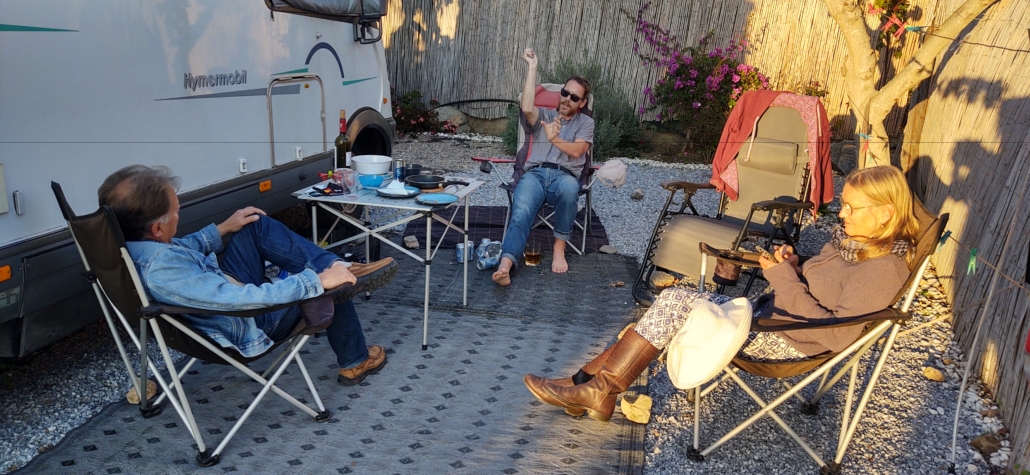
With a large 400Wp solar panel fitted and a large amount of battery capacity, they’re pondering going completely gas-free, if they can source a diesel-powered cooker or other alternative. I’ve never heard of diesel hobs, but they exist and can double up as space heaters as they don’t release fumes into the van (here’s one from Webasto, and another from Wallas). Another option would be to fit a hefty inverter and run a hob/oven on 230V, like these guys do, albeit on a boat where battery weight and space for solar PV panels is less of an issue.
At the moment Ju and I are using none of our LPG stash, we’re on hook-up at a campsite, running our fridge-freezer on mains electricity, cooking on a hotplate/with a Remoska, heating pot-washing water in a kettle on the electric hotplate (after our electric kettle died), have a small fan heater and are using the site showers. The only gas we use is from Campingaz bottles in a ‘suitcase’ camping stove when we need two pans on the go at once. We’ve done this as (a) we’re paying for the electricity so are making the most of it, and (b) we’ve a refillable LPG system which requires us to drive to a station to refill. There is no station in the town we’re in and when the municipality borders are closed, we couldn’t be sure if we’d be able to legally get to one when we needed it. Our LPG system remains completely full, so we’ve plenty in case we need to spend two weeks driving home without hook-up (not that it would be an issue, as we’d pass plenty of stations en-route anyway).
The only time we’ve ever had an issue with LPG is in Morocco/Finland (where there are no refill stations, so we brimmed our bottles before arriving and eked out our supply) and staying at a ski resort in the Alps. At this latter one we messed up and arrived with too little gas, burning through it very quickly in the deep cold. The aire we were on had bottled propane we could buy, and we could have connected one of these to our refill point with the correct hose (like this one from Gaslow), but we don’t have one. We do have an external gas BBQ connector adapter which we could connect a bottle to via a regulator to get the pressure down, but I’ve always been too nervous about ‘backfilling’ the system that way. That meant we had to shift off the aire. None of this has been a big issue, but diesel is far more widely available than LPG across Europe and (I imagine) the rest of the world, so it’s an interesting idea, switching completely away from gas – could it be the future for motorhomes?
Winter Motorhome Life
Darran full-times in the UK, staying almost exclusively off-site and vlogging about life on his The Urban Motorhome YouTube channel. He works as a trucker, so needs to be in the UK through the winter, and watching one of his latest videos where he takes a couple of days out in a hotel to get a break really reminded me just how lucky I am to be here (warning to any motorhomers – you might get a tad jealous as he runs his bath).
We full-timed for two years several years ago, but we spent the winter months waaaaayyy south of the UK’s latitudes, in Morocco, Spain, Tunisia and Sicily. Living in a motorhome through a cold, wet and grey winter is hard enough without trying to do it off-site through a pandemic. I take my hat off to Darran and any other full-timers dealing with those same conditions. We no longer full-time, more for access to a fixed community than any other reason, as we discussed here, and we don’t spend long winter periods in the van at British latitudes, that’s no fun for us.
Down here in Spain our winter lives are easy and comfortable. We feel safe on this site and the family who run it as so kind and helpful. We’ve a high-ampage 230V supply to the van, so zero issues with batteries running out of juice. We’ve running water on-pitch and a grey/black water disposal point a few metres away. The weather is the best we’re likely to see anywhere in Europe, so no problems with condensation or with anything freezing. There are on-site washing machines for €1 a go, and we’ve a washing line strung up alongside which dries everything in a few hours. Our feet or bikes (with a basic rack and panniers) carry our shopping from the supermarkets in town, or outdoor vegetable stall up the road.
Motorhome Internet TV Update
A quick update on our Internet TV system: it’s working (and taking a hammering)! We’ve a Superdrug Mobile unlimited 4G SIM which is giving us download speeds of between 10Mbps and 20Mbps, and we’re getting through over 100GB a month watching far too much TV (once the sun sets, it gets chilly so we retreat into the van and pop the telly on). Although we’re in Spain, the SIM has a UK IP address, so systems like BBC iPlayer and NetFlix both work fine, without any need for a VPN app. We’ve an Amazon Fire TV Stick which turns our Cello 12V TV into a Smart TV. We’ve set the Fire TV Stick to the lowest quality settings, and 99% of the time it streams well, just the occasional loss of quality or blip when it freezes for a few seconds. There’s a possibility Superdrug Mobile will start to limit the roaming use of the SIM abroad to 62 days in the future, like other UK suppliers are generally doing, but for the moment we’re getting as much data as we like for £20 a month, which is really great value.
Right-o, the next time we write the roadmap for Blighty’s exit from lockdown will have been released and hopefully the future will be clearer for us all.
Cheers folks, Jay

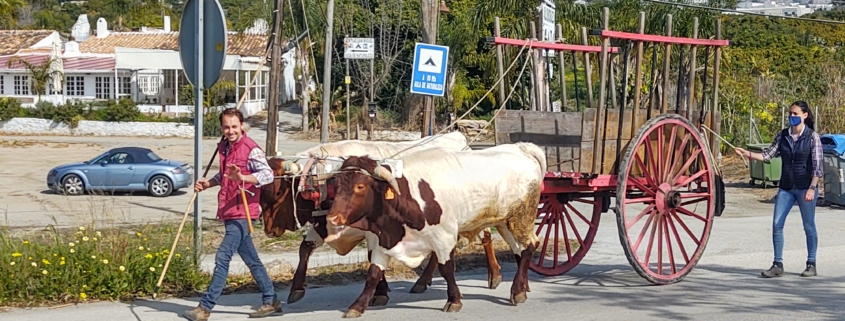

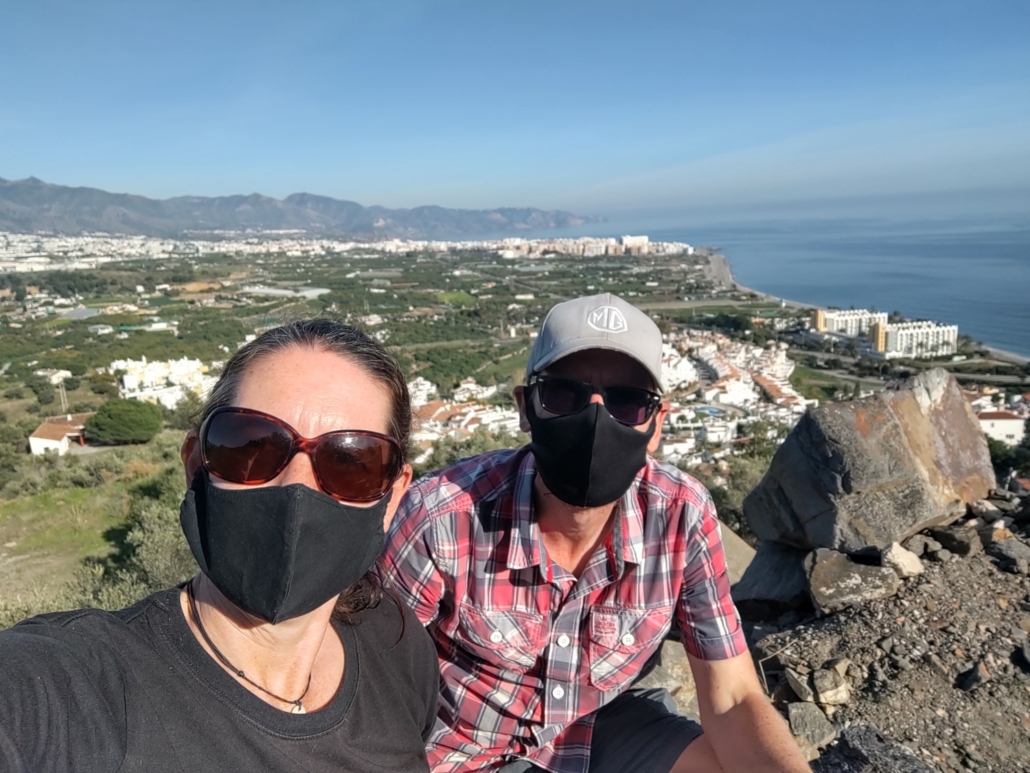

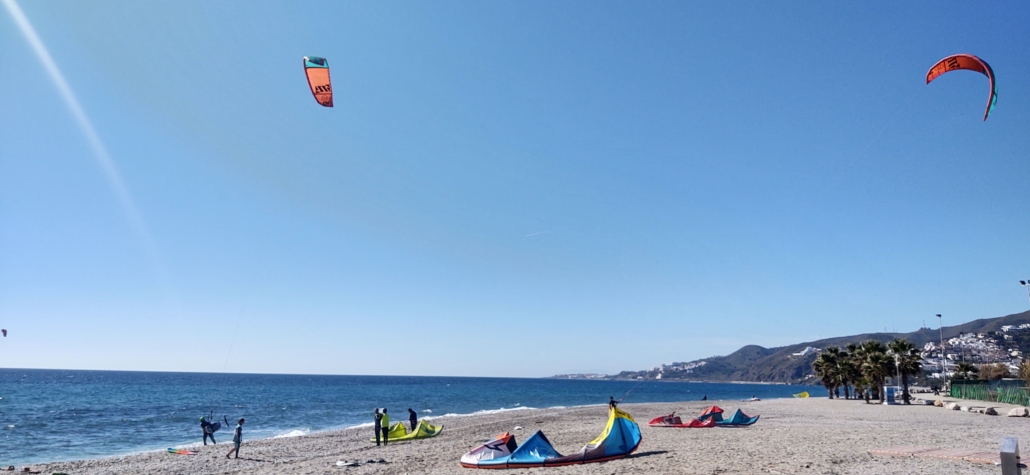
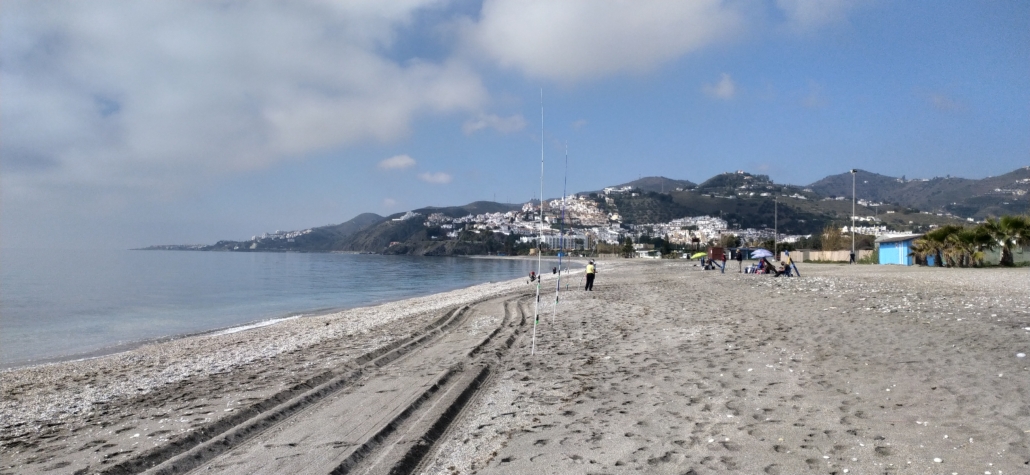

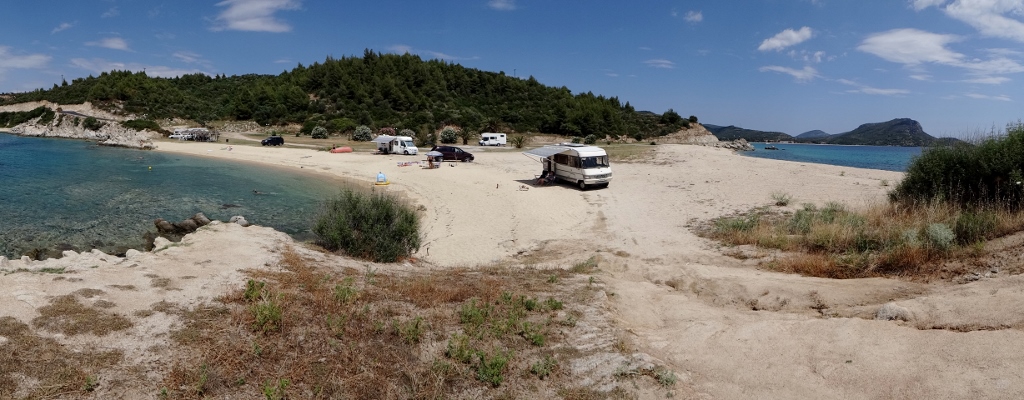
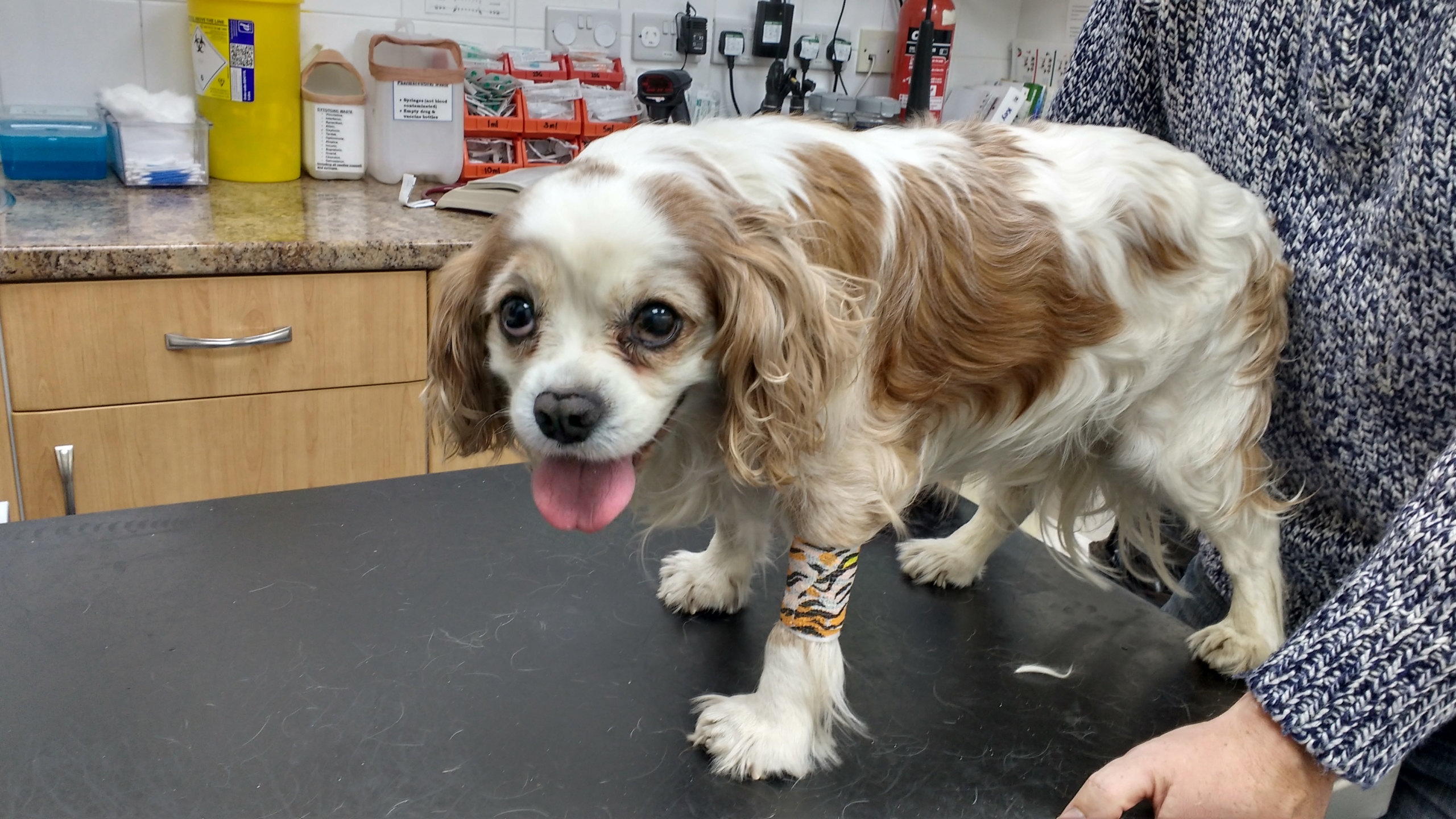

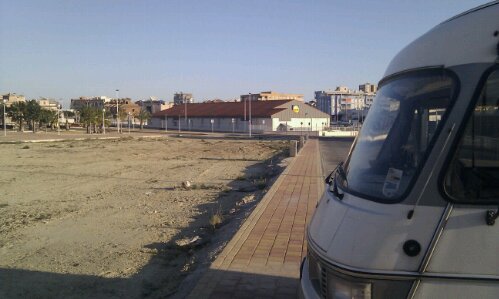
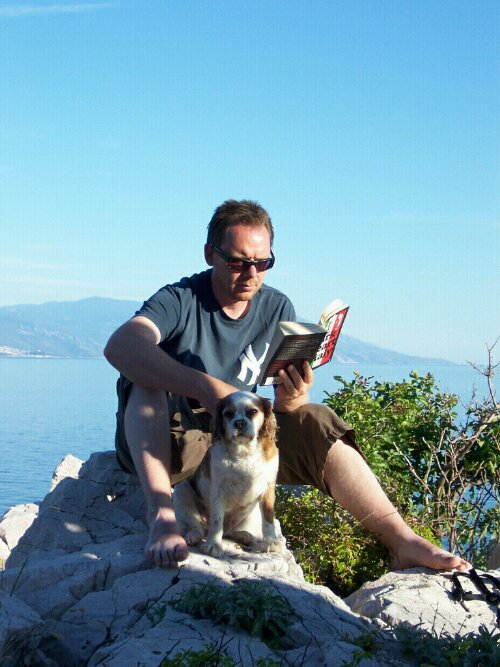


Great article. Really found it interesting. It’s said we live in interesting times and it’s certainly true right now. I guess you have to keep all options open right now. Take care. Be safe.
Thanks John, stay safe too fella, cheers, Jay
Sounds like you’ve got an okay setup there for sure. Great deal on the data from Superdrug Mobile.
I’m not sold on lithium batteries yet. Yes, I understand the benefits, but I just can’t wrap my head around the cost. And, as you mentioned they are a bit finicky with charge specifications. We are having two 100 watt panels and two AGM batteries installed in our new rig. Our power needs are pretty low, and we tend to drive at least a little every day that also recharges things.
I can’t bend my head around the cost of Lithium either Kevin, maybe one day. You guys must be excited to pick up your new rig, I know I’d be dying to get my hands on it! Circumstances demand patience of course. Happy hiking, good to hear from you, cheers, Jay
Yes, patience indeed. We were supposed to arrive in Germany on March 22, but that’s not happening. Albania, here we come…
Bon voyage guys.
Ola JJ,
if I was in your shoes, I would think about:
-where would I really like to go after the ban from Schengen Area ?
-where are runs , that I want to do?
-what else sights would we like to see till we’ll finish motorhoming?
– in which countries (outside Schengen Area) am I really interested in to visit them? Not just for an alibi.
– why would I like to return to the Cooler for a longer time than 3 months?
– should we change our flat in GB, to have a more comfortable living for a longer stay in GB in future?
Just thoughts, If I was in your shoes that would help to make decisions.
Regards Heide
Heide!!! Have you been taking a look around our minds?! These are the questions we think about every day. 🙂 There are a few other considerations we need to make too around the other loved ones in our lives. It’s a great problem to have, all this free time. 👍 Thank you for sending such a thoughtful comment, Jay
Hi guys enjoying the blog as always.
We have been all diesel with our US based RV since 2013 it is nice not worrying about chasing propane. We initially had a Webasto heater installed but had major problems that led to the first being replaced, after the second one also failed, we switched to an Espar diesel heater which has worked well. We have the Webasto diesel cook top. It works well but is relatively slow to heat up, and cool down after use. It takes a little coaxing to get going after it has been stored for a while, but if you are traveling full time that should not be a problem. We use an induction cook top most of the time as we have a large battery capacity and good solar for recharging. Several people we know who had the diesel cooktop installed switched over to induction for what it is worth. Details about our experience are in our blog if interested.
Downloaded your newest book yesterday and I am enjoying it. Hopefully we will be able to return soon to Europe to check out some of the sites you have listed!
Hi Ron
Good info, thankyou. Magnus mentioned his research had thrown up the speed issue with diesel hobs. We’re cooking on an electric hotplate at the moment and it takes quite a while to boil water compared with gas. It stays hot after being turned off too which isn’t an issue at the moment but if it were 30 degrees outside…
I’ve added your blog here for others to see and I’ll have a read, thank you and hope you enjoy the book and (fingers crossed) are able to enjoy more freedom later this year.
http://travelintiger.com/
Cheers, Jay